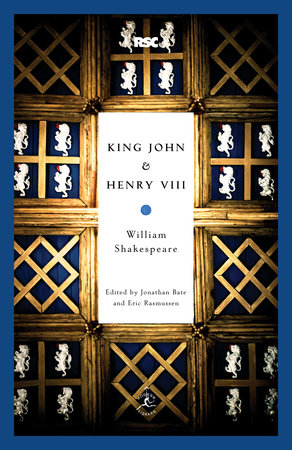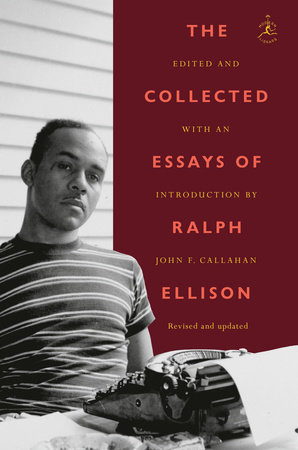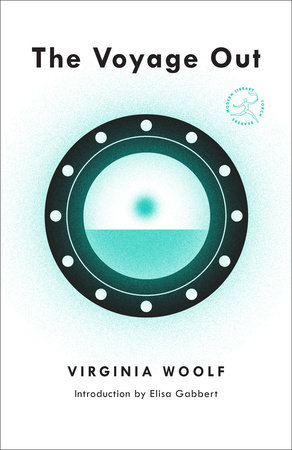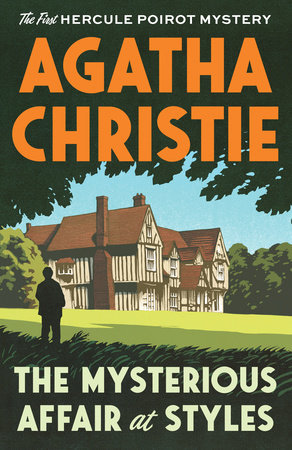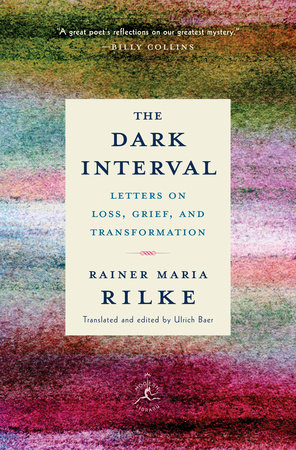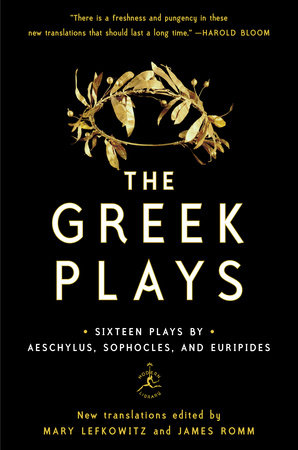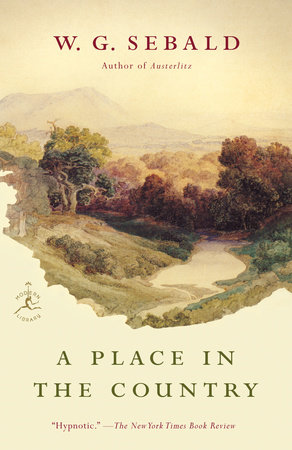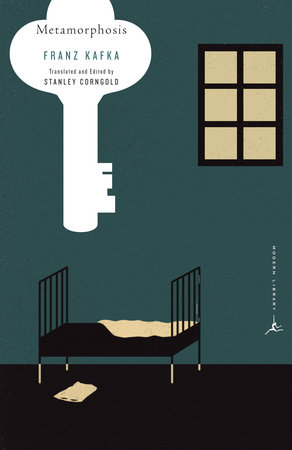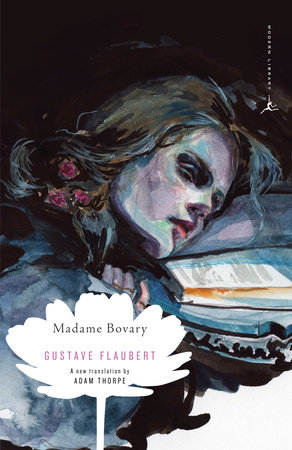Excerpt
King John & Henry VIII
Act 1 Scene 1 running scene 1
Enter King John, Queen Elinor, Pembroke, Essex and Salisbury, with the Chatillon of France
KING JOHN Now, say, Chatillon, what would France with us?
CHATILLON Thus, after greeting, speaks the King of France,
In my behaviour, to the majesty,
The borrowed majesty, of England here.
QUEEN ELINOR A strange beginning: 'borrowed majesty'!
KING JOHN Silence, good mother: hear the embassy.
CHATILLON Philip of France, in right and true behalf
Of thy deceasèd brother Geoffrey's son,
Arthur Plantagenet, lays most lawful claim
To this fair island and the territories -
To Ireland, Poitiers, Anjou, Touraine, Maine -
Desiring thee to lay aside the sword
Which sways usurpingly these several titles,
And put the same into young Arthur's hand,
Thy nephew, and right royal sovereign.
KING JOHN What follows if we disallow of this?
CHATILLON The proud control of fierce and bloody war,
To enforce these rights so forcibly withheld-
KING JOHN Here have we war for war and blood for blood,
Controlment for controlment: so answer France.
CHATILLON Then take my king's defiance from my mouth,
The furthest limit of my embassy.
KING JOHN Bear mine to him, and so depart in peace:
Be thou as lightning in the eyes of France;
For ere thou canst report, I will be there:
The thunder of my cannon shall be heard.
So hence: be thou the trumpet of our wrath
And sullen presage of your own decay.-
An honourable conduct let him have: To Pembroke
Pembroke, look to't.- Farewell, Chatillon.
Exeunt Chatillon and Pembroke
QUEEN ELINOR?What now, my son? Have I not ever said
How that ambitious Constance would not cease
Till she had kindled France and all the world,
Upon the right and party of her son?
This might have been prevented and made whole
With very easy arguments of love,
Which now the manage of two kingdoms must
With fearful bloody issue arbitrate.
KING JOHN Our strong possession and our right for us.
QUEEN ELINOR?Your strong possession much more Aside to John than your right,
Or else it must go wrong with you and me:
So much my conscience whispers in your ear,
Which none but heaven, and you, and I, shall hear.
Enter a Sheriff He whispers to Essex
ESSEX My liege, here is the strangest controversy,
Come from the country to be judged by you,
That e'er I heard: shall I produce the men?
KING JOHN Let them approach.- [Exit Sheriff]
Our abbeys and our priories shall pay
This expeditious charge.
Enter Robert Falconbridge and Philip [the Bastard]
What men are you?
BASTARD Your faithful subject I, a gentleman,
Born in Northamptonshire and eldest son,
As I suppose, to Robert Falconbridge,
A soldier, by the honour-giving hand
Of Coeur-de-lion, knighted in the field.
KING JOHN What art thou?
ROBERT The son and heir to that same Falconbridge.
KING JOHN Is that the elder, and art thou the heir?
You came not of one mother then, it seems.
BASTARD Most certain of one mother, mighty king,
That is well known, and, as I think, one father:
But for the certain knowledge of that truth
I put you o'er to heaven, and to my mother;
Of that I doubt, as all men's children may.
QUEEN ELINOR Out on thee, rude man! Thou dost shame thy mother
And wound her honour with this diffidence.
BASTARD I, madam? No, I have no reason for it.
That is my brother's plea and none of mine,
The which if he can prove, a pops me out
At least from fair five hundred pound a year:
Heaven guard my mother's honour and my land.
KING JOHN A good blunt fellow.- Why, being younger Aside /
born, To Bastard
Doth he lay claim to thine inheritance?
BASTARD I know not why, except to get the land:
But once he slandered me with bastardy:
But whe'er I be as true begot or no,
That still I lay upon my mother's head:
But that I am as well begot, my liege -
Fair fall the bones that took the pains for me -
Compare our faces, and be judge yourself
If old Sir Robert did beget us both,
And were our father and this son like him:
O old Sir Robert, father, on my knee
I give heaven thanks I was not like to thee!
KING JOHN Why, what a madcap hath heaven lent us here!
QUEEN ELINOR He hath a trick of Coeur-de-lion's face:
The accent of his tongue affecteth him.
Do you not read some tokens of my son
In the large composition of this man?
KING JOHN Mine eye hath well examined his parts,
And finds them perfect Richard.- Sirrah, speak, To Robert
What doth move you to claim your brother's land?
BASTARD Because he hath a half-face like my father.
With half that face would he have all my land -
A half-faced groat - five hundred pound a year!
ROBERT My gracious liege, when that my father lived,
Your brother did employ my father much-
BASTARD Well, sir, by this you cannot get my land:
Your tale must be how he employed my mother.
ROBERT And once dispatched him in an embassy
To Germany, there with the emperor
To treat of high affairs touching that time.
Th'advantage of his absence took the king,
And in the meantime sojourned at my father's;
Where how he did prevail, I shame to speak.
But truth is truth: large lengths of seas and shores
Between my father and my mother lay,
As I have heard my father speak himself,
When this same lusty gentleman was got.
Upon his death-bed he by will bequeathed
His lands to me, and took it on his death
That this my mother's son was none of his;
And if he were, he came into the world
Full fourteen weeks before the course of time.
Then, good my liege, let me have what is mine,
My father's land, as was my father's will.
KING JOHN Sirrah, your brother is legitimate:
Your father's wife did after wedlock bear him:
And if she did play false, the fault was hers,
Which fault lies on the hazards of all husbands
That marry wives. Tell me, how if my brother,
Who, as you say, took pains to get this son,
Had of your father claimed this son for his?
In sooth, good friend, your father might have kept
This calf, bred from his cow, from all the world:
In sooth he might. Then if he were my brother's,
My brother might not claim him, nor your father,
Being none of his, refuse him: this concludes,
My mother's son did get your father's heir,
Your father's heir must have your father's land.
ROBERT Shall then my father's will be of no force
To dispossess that child which is not his?
BASTARD Of no more force to dispossess me, sir,
Than was his will to get me, as I think.
QUEEN ELINOR?Whether hadst thou rather be: a Falconbridge,
And like thy brother to enjoy thy land,
Or the reputed son of Coeur-de-lion,
Lord of thy presence, and no land beside?
BASTARD Madam, an if my brother had my shape
And I had his, Sir Robert's his like him,
And if my legs were two such riding-rods,
My arms, such eel-skins stuffed, my face so thin,
That in mine ear I durst not stick a rose,
Lest men should say, 'Look, where three-farthings goes',
And to his shape were heir to all this land,
Would I might never stir from off this place,
I would give it every foot to have this face:
It would not be Sir Nob in any case.
QUEEN ELINOR?I like thee well: wilt thou forsake thy fortune,
Bequeath thy land to him and follow me?
I am a soldier and now bound to France.
BASTARD Brother, take you my land, I'll take my chance.
Your face hath got five hundred pound a year,
Yet sell your face for five pence and 'tis dear.-
Madam, I'll follow you unto the death.
QUEEN ELINOR Nay, I would have you go before me thither.
BASTARD Our country manners give our betters way.
KING JOHN What is thy name?
BASTARD Philip, my liege, so is my name begun,
Philip, good old sir Robert's wife's eldest son.
KING JOHN From henceforth bear his name whose form thou bear'st:
Kneel thou down Philip, but rise more great, He knights the
Arise sir Richard, and Plantagenet. Bastard
BASTARD Brother by th'mother's side, give me your hand:
My father gave me honour, yours gave land:
Now blessèd be the hour by night or day,
When I was got, Sir Robert was away.
QUEEN ELINOR The very spirit of Plantagenet:
I am thy grandam, Richard: call me so.
BASTARD Madam, by chance, but not by truth: what though?
Something about a little from the right,
In at the window, or else o'er the hatch:
Who dares not stir by day must walk by night,
And have is have, however men do catch:
Near or far off, well won is still well shot,
And I am I, howe'er I was begot.
KING JOHN Go, Falconbridge, now hast thou thy desire:
A landless knight makes thee a landed squire.-
Come, madam, and come, Richard, we must speed
For France, for France, for it is more than need.


